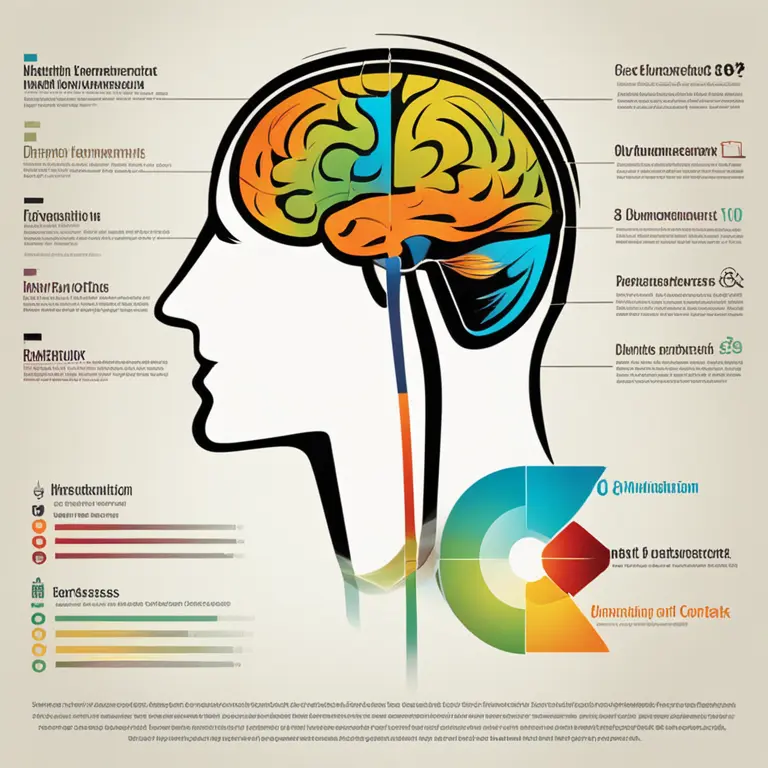
Meditation's Role in Alleviating Anxiety
Discover how meditation can serve as a calmative tool in managing anxiety and enhancing mental well-being in contemporary stress-filled environments.
article by Hina Kurosawa
Introduction to Meditation and Anxiety
With the world's pace ever-accelerating, anxiety has emerged as a common companion for many. The quest for peace of mind leads some to explore ancient practices, among which meditation stands out. This age-old technique, once nestled within the confines of spiritual traditions, has now gained recognition for its therapeutic value in modern psychological health. Research continues to back meditation as not only a balm for the spirit but also a potent antidote to anxiety. It invites a slower rhythm into lives frenzied by tech-driven stimuli and the ever-turning wheels of thought.

The Science Behind Meditation and Stress
The scientific community has turned its focus to understanding how meditation reshapes our brain's relationship with stress. Brain imaging studies in recent years demonstrate the impact of regular meditation on areas like the amygdala, known as the brain's "fear center." Practitioners show reduced activity in this region, suggesting a dampening of stress responses. Furthermore, meditation enhances connectivity in the prefrontal cortex, bolstering our ability to manage emotions and engage in rational thought processes over impulsive reactions.

Meditation Techniques to Combat Anxiety
There are various meditation techniques tailored to soothe anxiety. Mindfulness meditation encourages present-moment awareness, theoretically clipping the wings of anxiety that often flutters from past regrets to future fears. Techniques such as guided imagery or mantra repetition provide the anxious mind a point of focus, pulling attention away from distressing thoughts. Practices like body scan meditation heighten body awareness, often revealing tension and promoting relaxation.

Integrating Meditation Into Your Routine
Incorporating meditation into daily life need not be a daunting task. Even short sessions of 10-20 minutes can yield benefits. The beauty of meditation lies in its flexibility; it can be practiced anywhere — from a quiet room to a park bench. Consistency, more than duration or location, underpins success. With apps and online communities offering guided sessions, access to meditation is broader than ever, inviting even the busiest individuals to carve out moments for mental tranquility.

Objections and Counterarguments
Skepticism often arises regarding meditation's effectiveness. Critics may cite the necessity for more comprehensive, long-term studies. While ongoing research aims to fortify current understanding, existing evidence presents a compelling case for considering meditation as a valid tool for anxiety management. Practitioners' testimonials add weight to empirical data, illustrating improvements in stress levels, emotional regulation, and overall quality of life.
Future Prospects and Developments
Looking ahead to 2024 and beyond, we anticipate the integration of meditation into more formal healthcare settings. Mental health professionals are increasingly recommending mind-body practices alongside conventional treatments. Virtual reality meditation experiences and AI-driven personal meditation guides are in development, promising to facilitate even more personalized and immersive sessions that may prove especially beneficial for those grappling with anxiety.
Published: 1/14/2024
Modified: 1/15/2024
More predictions
Come back here soon to learn more about yourself and your future


Mindfulness Meditation: A Handbook for High Schoolers
Discover how mindfulness meditation can benefit high school students, enhancing focus, reducing stress, and promoting overall well-being.


Harmonizing Life with Meditation Mantras
Delve into the transformative power of meditation mantras to align mind, body, and spirit for a harmonious existence.


Mindfulness Meditation Basics for First Graders
Introducing foundational mindfulness meditation practices to instill calm and focus in first-grade students.